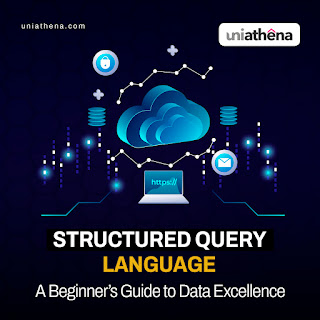Enhance Your Skills with a Diploma in Management Information Systems!
The digital age, which is filled with data-driven decision-making, reveals the importance of obtaining a Management Information Systems (MIS) certificate. However, what is MIS, and why should it be cared about? Modern organisations need to have Management Information Systems (MIS) as they are used to manage and process information for operational and strategic decision-making.
With the onset of digital transformation, MIS has seen a significant increase as it helps businesses achieve their goals through technology. Effective information management is key in today’s fast-paced business world. Therefore, an MIS is essential to organizations in various aspects, from easing the handling of data and making it more organized to communication between different levels of employees and all the way up to support the decision-making process in a timely manner.
Types of Management Information System (MIS)
Transaction Processing Systems (TPS): They are a type of MIS that aims at helping to ensure daily operations are managed efficiently. They handle numerous routine transactions with details and precision, such as transaction systems for retailers, banking systems for deposits and withdrawals and airline ticket booking systems.
Decision Support Systems (DSS): Decision Support Systems (DSS) are software-based computer programs that help managers make better decisions. These systems are used in analyzing data from multiple sources enabling users to experiment with different scenarios and their outcomes. By doing so, DSS gives management insights into the options available through analytics which they apply in selecting the best alternatives and making effective choices.
Executive Information Systems (EIS): These systems are exclusively tailor-made for top management at the CEO level and provide information relevant to critical business indicators. EIS shows how the firm is doing and, supports strategic planning, so it is possible to have effective control.
Customer Relationship Management Systems (CRM): CRM systems explain how a firm manages interactions with its current and future customers. They help in obtaining knowledge of customer preferences and behaviours by analyzing information on customers, tracking interactions, and handling sales pipelines. Proper use of CRM systems increases customer satisfaction levels, enables customized promotional strategies, and finally results in sales success.
The Role of MIS in Organizations
Better Decision Making: MIS is regarded as the centre of decision-making in an organization at different tiers within the system. It provides accurate and timely information that helps managers and staff make effective decisions instead of relying on intuition. Therefore, companies with well-managed MIS are better placed to respond tactfully to the changing market conditions.
Improved Efficiency and Productivity: Enhancement of efficiency and productivity is one major advantage of implementing the MIS in organizations. It can automate routine work and help in communication from one department to another, which may reduce manual errors and increase speed in operations.
Supporting Strategic Planning: Management Information Systems allows access to data with a view to strategic planning in the long run. By studying trends and predicting their future consequences, businesses can align operational initiatives toward key business goals.
UniAthena’s Management Information Systems Course
This course provides a foundational understanding of Management Information Systems (MIS). You will gain an understanding of topics including Information System Development, the Structure and Importance of MIS, Transaction Processing Systems (TPS), Office Automation Systems (OAS), and decision support systems. Besides, you will find out how to utilise Microsoft Excel for information management and generating meaningful reports.
The best part about this course is its unmatched flexibility. You can complete this course at your own pace in just 1–2 weeks of learning and upon successful completion, earn yourself a Blockchain-verified certification to demonstrate your learning. Whether you are a curious learner or a professional looking to upskill, this Free Short Course is a perfect way to start. Apply now!




Comments
Post a Comment